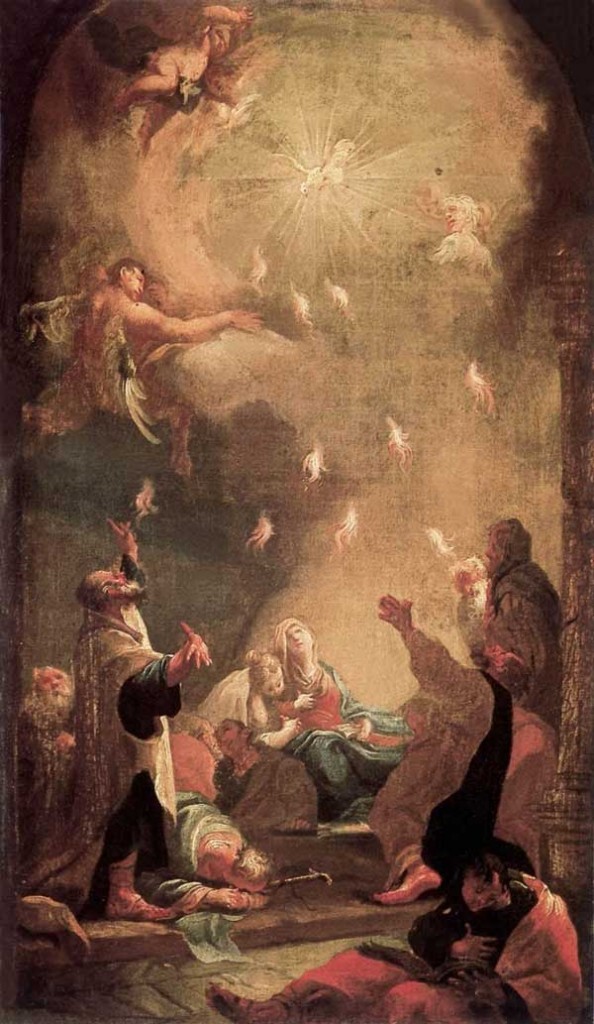Podcast: Play in new window | Download (Duration: 1:53 — 1.4MB) | Embed
Subscribe: Apple Podcasts | Spotify | Amazon Music | Android | Pandora | iHeartRadio | JioSaavn | Podchaser | Gaana | Podcast Index | Email | TuneIn | Deezer | Anghami | RSS | More
Novena to the Holy Spirit
Begin be reciting the following prayer…
O Holy Spirit, Divine Consoler!
I adore you as my True God.
I offer You my whole heart,
and I render You heartfelt thanks
for all the benefits You have bestowed upon the world.
You are the author of all supernatural gifts
and enriched the Blessed Virgin Mary,
the Mother of God,
with all favors,
I ask you to visit me by Your grace and Your love,
and grant me the favor
I so earnestly seek…
State your request here…
O Holy Spirit,
spirit of truth, come into our hearts:
shed the brightness of your light on all nations,
that they may be of one faith and pleasing to You.
Amen.
DAY TWO
 O Holy Spirit,
O Holy Spirit,
make me faithful in every thought,
and grant that I may always listen to your voice,
and watch for Your light,
and follow Your gracious inspirations.
I cling to You,
and give myself to You,
and ask You by Your compassion
to watch over me in my weakness.
Holding the pierced feet of Jesus,
looking at His Five Wounds,
trusting in His Precious Blood,
adoring His opened side and stricken heart,
I implore You adorable Spirit,
helper of my infirmity,
to keep me in Your grace,
now and always,
and grant us the favor we ask in this novena…
State your request here…
Come, O Holy Spirit,
fill the hearts of Your faithful,
and kindle in them the fire of Your love.
Amen.






 Novena to the Holy Spirit
Novena to the Holy Spirit
 Begin be reciting the following prayer…
Begin be reciting the following prayer… 







